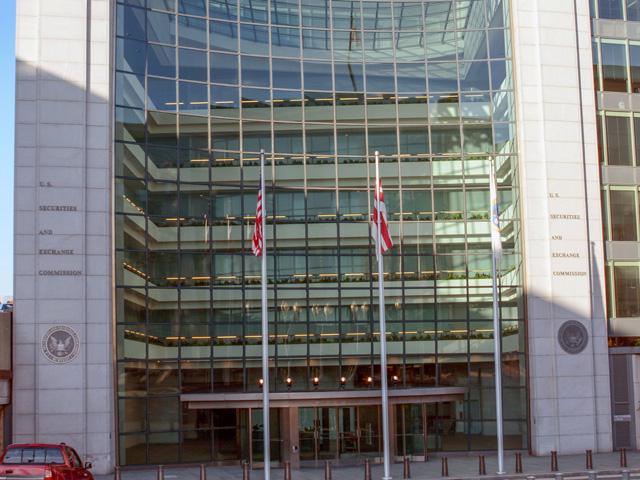Ag Escapes SEC Emission Reporting Rule
Final SEC Emissions Reporting Rule Exempts Farmers, Ranchers From Reporting
This article was originally posted at 12:28 p.m. CST on Wednesday, March 6. It was last updated with additional information at 2:30 p.m. CST on Wednesday, March 6.
**
LINCOLN, Neb. (DTN) -- The U.S. Securities Exchange Commission on Wednesday voted to finalize a climate-disclosure rule that dropped a requirement for U.S.-listed companies to disclose Scope 3 greenhouse gas emissions, including farms and ranches.
The final rule is considered a victory for farmers and ranchers who spoke out against the "Enhancement and Standardization of Climate Related Disclosures for Investors" rule.
The final rule relieves a significant burden on food companies that rely on agricultural commodities across their supply chains. That rule was touted by the SEC as a way to protect investors in publicly traded companies by requiring those companies to report data about their entire supply chains.
When the rule was proposed in April 2022, a group of more than 100 agriculture interest groups expressed concern that the rule could have required farms and ranches to report personal and business-related information to the SEC.
Groups like the American Farm Bureau Federation said the rule was potentially dangerous to ag because nearly all ag products eventually touch publicly traded companies.
AFBF President Zippy Duvall on Wednesday said it was good to see the SEC withdraw an "overreaching" Scope 3 requirement.
"Farmers are committed to protecting the natural resources they've been entrusted with, and they continue to advance climate-smart agriculture, but they cannot afford to hire compliance officers just to handle SEC reporting requirements," he said in a statement.
"This is especially true for small farms that would have likely been squeezed out of the supply chain."
P[L1] D[0x0] M[300x250] OOP[F] ADUNIT[] T[]
The state of California also passed a law requiring companies conducting business in the state to report Scope 3 emissions.
"Now that the SEC has thoughtfully evaluated the issue, AFBF urges California to follow the SEC's lead by withdrawing its Scope 3 reporting requirement for any company doing business in the state," AFBF said in a news release.
Environmental groups, including Friends of the Earth, said in response that the SEC's commission's 3-2 decision to leave agriculture and other industries out of the reporting rule was a mistake.
"SEC gutting its final climate disclosure rule is a massive giveaway to big ag and big oil, delivering a blow to investors," said Erich Pica, president of Friends of the Earth.
"Amid escalating climate-related financial risks, these rollbacks signify a profound failure to ensure fair, orderly and efficient markets. This is a huge miss for the Biden administration. By caving to the big ag lobby, SEC allows some of the world's biggest, most climate-destructive corporations to conceal their massive greenhouse gas footprints."
The group said in a news release that Scope 3 emissions from upstream supply chains or downstream product consumption make up the vast majority of overall emissions for the food and agriculture sectors.
"For example, a recent analysis estimated that Scope 3 emissions from JBS (the world's largest meat company) constitute 97% of the company's emissions," FOE said in a news release.
"This decision by SEC exposes investors to financial risk from incomplete information about a company's climate-risk profile."
Still, the SEC rule also had critics claiming the agency did not need to highlight climate challenges. Sen. Kevin Cramer, R-N.D., said in a news release that existing security regulations already require public companies to annually disclose material risks and financial effects.
"The SEC's final climate disclosure rule is the definition of federal overreach," Cramer said.
"Congress didn't give the SEC any authority for this mandate, nor is the commission an environmental regulator. Not only is this outside their legal bounds, forcing publicly traded companies to report their emissions data opens them up to new liabilities while giving a competitive edge to dirtier foreign producers who have no such burdensome requirements."
The rule breaks emissions into three categories. Companies with more than $75 million in revenues would have to report so-called Scope 1 and 2 emissions directly from their operations. Scope 3 covers emissions from customers and supply chains.
SEC Chairman Gary Gensler said in a statement the rule gives investors the power to decide what risks they want to take.
"These final rules build on past requirements by mandating material climate risk disclosures by public companies and in public offerings," he said.
"The rules will provide investors with consistent, comparable, and decision-useful information, and issuers with clear reporting requirements. Further, they will provide specificity on what companies must disclose, which will produce more useful information than what investors see today."
Once the rule is published in the Federal Register, it will take effect within 60 days.
Before adopting the final rule, the SEC considered more than 24,000 comment letters in response to the rule's release in March 2022.
Back in September 2022, more than 80 members of the U.S. House of Representatives introduced legislation to end the rule, https://www.dtnpf.com/….
Read more on DTN:
"Ag Groups Alarmed by SEC Climate Rule," https://www.dtnpf.com/…
Todd Neeley can be reached at todd.neeley@dtn.com
Follow him on X, formerly known as Twitter, @DTNeeley
(c) Copyright 2024 DTN, LLC. All rights reserved.



